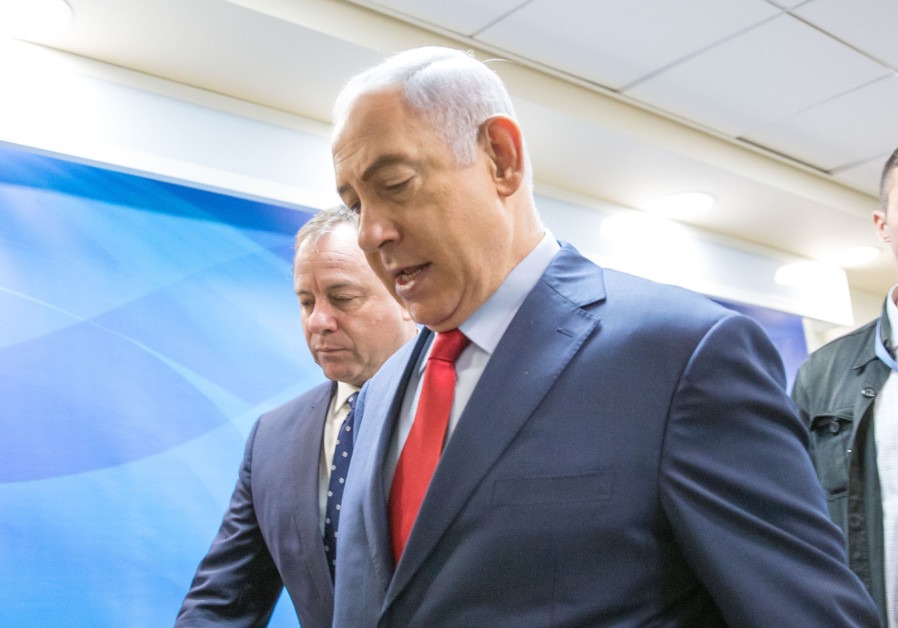Security cabinet meets as Gaza at crux between ‘an agreement or war’

Prime Minister Netanyahu enters a meeting of the security cabinet, August 2017. (photo credit: MARC ISRAEL SELLEM/THE JERUSALEM POST)
Amid reports of intensive Egyptian and UN efforts to cobble together a long-term Gaza-Israel truce that would also include reconciliation between Hamas and Fatah, the security cabinet met Sunday for more than two hours after which the PMO released a statement saying only that the IDF is ready for any eventuality.
Before the meeting, Transportation and Intelligence Affairs Minister Israel Katz posted on Twitter that “the situation in Gaza is nearing a decision, either an arrangement or war.”
The laconic statement issued after the security cabinet meeting, however, gave no indication of which direction matters were headed.
According to the statement, the ministers were briefed by IDF chief of staff Lt.-Gen. Gadi Eisenkot on the situation concerning Gaza, “and the IDF was prepared for any scenario.”
The ministers were briefed on the efforts of the Egyptians and UN Mideast envoy Nikolay Mladenov, and told that the failure to work out a reconciliation agreement acceptable to Hamas and Fatah was one of the major stumbling blocks to the deal.
Kobi Michael, a senior fellow at the Institute for National Security Studies in Tel Aviv and the former deputy director-general at the Strategic Affairs Ministry, said in a conference call hosted by The Israel Project that two parallel tracks, both facilitated by the Egyptians, were underway: the first is the internal Hamas-Fatah track, and the second is the cease fire between Israel and Hamas.
“There is a sort competition and tension between these two tracks,” he said.
The Palestinian Authority, he said, “doesn’t like the idea of the second track – the negotiations between Israel and Hamas through the Egyptians – because they understand that once these negotiations will be finalized then it means that the Gaza Strip is ruled by Hamas officially with a regional agreement, backed by an international agreement because the UN is involved here as well.”
(function(w,d,s,i){w.ldAdInit=w.ldAdInit||[];w.ldAdInit.push({slot:10834723912266086,size:[0, 0],id:”ld-9628-9059″});if(!d.getElementById(i)){var j=d.createElement(s),p=d.getElementsByTagName(s)[0];j.async=true;j.src=”//cdn2.lockerdomecdn.com/_js/ajs.js”;j.id=i;p.parentNode.insertBefore(j,p);}})(window,document,”script”,”ld-ajs”);
This, he said, “means the failure” of PA President Mahmoud Abbas regarding the reunification of the West Bank and the Gaza Strip, something that would be part of his legacy.
Reuters quoted Munir Al-Jaghoub, a spokesman for Abbas, as saying that such a deal would bring about a “separation of Gaza from the rest of the homeland and would create a mini-state, which will be the graveyard of our national project.”
Michael said that the ceasefire agreement being discussed between Israel and Hamas has four phases.
The first phase of the deal, he said, would have Hamas stop all violence, including the incendiary kites and balloons and the violent Friday protests along the border fence. In return, Israel would re-open the Kerem Shalom crossing to full capacity, and the Egyptians would also fully open the Rafah crossing.






Comments are closed.